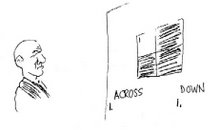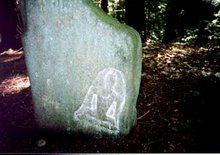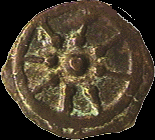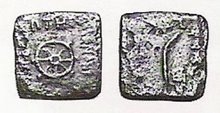Friday, September 7, 2018
Donald Nero
"You know when Abraham Lincoln made that Gettysburg Address speech, the great speech, you know he was ridiculed?" Trump said during a rally in Billings, Mont., citing the speech that Lincoln gave on a battlefield near Gettysburg, Pa., during the Civil War.
"And he was excoriated by the fake news. They had fake news then. They said it was a terrible, terrible speech."
Trump said the speech only became widely revered 50 years after Lincoln's death.
"Fifty years after his death they said it may have been the greatest speech ever made in America," Trump said. "I have a feeling that's going to happen with us. In different ways, that's going to happen with us."
50 years after your death, people will be ridiculing you for your ineptness, your narcissism, your inhumanity, and your tiny, tiny hands.
I think Trump has the best chance of any president of being remembered 100 years from now. He will go down as one of the biggest jokes in history…
A lot more people know the names Nero and Caligula than the names of any quietly competent Roman Emperors.
SOURCE
Thursday, September 6, 2018
Inside Job
Trump is facing a test to his presidency unlike any faced by a modern American leader.
It’s not just a special counsel, or a bitterly divided country under Trump’s lack of leadership, or even that Republicans will lose the House. All that is “a given.”
The test — which he does not grasp — is that many senior officials in his own administration are working diligently from within to quash his worst inclinations.
To be clear, this is not a “resistance” of the left.
Senior officials believe their duty is to this country. Meanwhile, this president continues to act in a manner that is detrimental to the health of our republic.
That is why so many Trump appointees have vowed to do what they can to preserve our democratic institutions.
The root of the problem is the president’s amorality. Anyone who works with him knows he is not moored to any principles that guide him.
Although he was elected as a Republican, the president shows little affinity for free minds, free markets and free people. At best, he invokes these ideals in scripted settings. At worst, he has attacked them outright.
His mass-marketing of the press as the “enemy of the people,” is clearly anti-democratic.
The president’s leadership style is impetuous, adversarial, petty and ineffective.
From the White House to executive branch departments and agencies, senior officials will privately admit their daily disbelief at the commander in chief’s comments and actions. Most are working to insulate their operations from him.
Meetings with him veer off topic and off the rails, he engages in repetitive rants, and his impulsiveness results in half-baked, ill-informed and occasionally reckless decisions that have to be walked back.
Wednesday, September 5, 2018
Trump and Treason?
When Trump declared on Twitter that his son held that Trump Tower meeting with the expectation of receiving dirt on Hillary Clinton, he may have done more than concede that collusion did, in fact, take place.
Much of the chatter about Trump’s Twitter focuses on two facts: 1) the Trump Tower gathering “was a meeting to get information on an opponent.” However, we know this meeting was “information on an opponent” furnished by the Russian government.
2) Trump has flatly conceded collusion more directly than ever before.
But what’s also notable is why Trump tweeted. He was responding to a report in The Post that said this:
Trump has confided to friends and advisers that he is worried the Mueller probe could destroy the lives of what he calls “innocent and decent people” — namely Trump Jr. … As one adviser described the president’s thinking, he does not believe his son purposefully broke the law, but is fearful nonetheless that Trump Jr. inadvertently may have wandered into legal ¬jeopardy.
Publicly Trump claimed that this report is “a complete fabrication,” adding that the meeting was “totally legal and done all the time in politics.” [and he was only helping the sheep...]
Trump and his lawyers keep claiming there was nothing wrong with this meeting — but they keep lying about it.
Trump dictated the statement falsifying the meeting’s rationale is one glaring example of this.
Trump keeps pretending, as he did in this tweet, that the very thing that may make this meeting legally problematic — the Russian government’s role — never happened.
“The obstruction case against Trump is more solid if there is evidence that he recognizes legal jeopardy,” Daniel Hemel, an assistant law professor at the University of Chicago who recently co-published a useful scholarly exploration of presidential obstruction of justice.
But to show criminal obstruction of justice, Mueller would have to demonstrate that Trump acted with “corrupt intent” for the express purpose of protecting his son from investigation.
Trump may have done some or all these things. But we don’t know that, and it has to be proved.
Or, as Adam Davidson puts it, Trump has at this point “openly admitted to collusion, lying, and a coverup.” Which means that the case against him — politically — has gotten stronger.
Tuesday, September 4, 2018
Trump and Tonic
The use of a train phrase is a classic metaphor.
It is common to hear something you can’t stop described as a “freight train.”
This metaphor has a bonus for Trump that it forms an alliterative phrase “Trump Train.”
Another example of alliteration is: nattering nabobs of negativism.
That phrase was used by Vice President Spiro Agnew to refer to the members of the media with whom he had a very acrimonious relationship.
Monday, September 3, 2018
One Nation, under dog...
The Christian Right is trying to rewrite the history of the United States, as part of their campaign to force their religion on others. According to the fruitcakes, the Founding Fathers of this country were Christians who wanted the United States to be a Christian nation.
Not true! The early presidents and patriots were generally Deists or Unitarians, believing in an impersonal Providence but rejecting the divinity of Jesus and the Old and New Testaments alike.
Thomas Paine: "I do not believe in the creed professed by the Jewish church, by the Roman church, by the Greek church, by the Turkish church, by the Protestant church, nor by any church that I know of . . . Each of those churches accuse the other of unbelief; and for my own part, I disbelieve them all." [1]
George Washington, first president: referred to Providence as an impersonal force, remote and abstract, he never declared himself to be a Christian in any of his correspondence. Washington championed freedom from religious intolerance. When John Murray (a Universalist who denied the existence of Hell) was invited to become an army chaplain, the other chaplains petitioned Washington for his dismissal. Instead, Washington gave him the appointment. Washington’s last words lacked any religious nature and he did not call for any clergyman to be in attendance. [2]
John Adams, second president: wrote that he found among the lawyers "a noble air and gallant achievements" but among the clergy, the "pretended sanctity of some absolute dunces." [3] Late in life, he wrote, "As I understand the Christian religion, it was, and is, a revelation. But how has it happened that millions of fables, tales, and legends have been blended… that have made them the most bloody religion that ever existed?" [4]
During Adams' presidency, the Senate ratified the Treaty of Peace and Friendship, which states in Article XI that "the Government of the United States of America is not in any sense founded on the Christian religion." This treaty with Tripoli was written by Joel Barlow during Washington's administration. [2]
Thomas Jefferson, third president and author of the Declaration of Independence: "I trust that there is not a young man now living in the United States who will not die an Unitarian." [5] He referred to the Revelation of St. John as "the ravings of a maniac" [6] and wrote, "The Christian priesthood, finding the doctrines of Christ… in the mysticisms of Plato… The doctrines which flowed from the lips of Jesus himself are within the comprehension of a child; but thousands of volumes have not yet explained the Platonisms engrafted on them: and for this obvious reason that nonsense can never be explained." [7]
James Madison, fourth president: Madison was not religious in any conventional sense. "Religious bondage shackles and debilitates the mind and unfits it for every noble enterprise." [8] "During almost fifteen centuries has the legal establishment of Christianity been on trial. What have been its fruits? More or less in all places, pride and indolence in the Clergy, ignorance and servility in the laity; in both, superstition, bigotry and persecution." [9]
Ethan Allen, whose capture of Fort Ticonderoga helped inspire Congress and the country to pursue the War of Independence: "That Jesus Christ was not God is evident from his own words." In the same book, Allen noted that he was generally "denominated a Deist, the reality of which I never disputed, being conscious I am no Christian." [10] When Allen married Fanny Buchanan, he stopped his own wedding ceremony when the Judge asked him if he promised "to live with Fanny Buchanan agreeable to the laws of God." Allen refused to answer until the Judge agreed that the God referred to was the God of Nature, and the laws those "written in the great book of Nature." [11]
Benjamin Franklin: "As to Jesus of Nazareth, my Opinion of whom you particularly desire, I think the System of Morals and his Religion . . . has received various corrupting Changes, and I have, with most of the present Dissenters in England, some Doubts as to his Divinity; tho' it is a question I do not dogmatize upon, having never studied it, and think it needless to busy myself with it now, when I expect soon an Opportunity of knowing the Truth with less Trouble." [12]
________________________________________
Footnotes
1. The Age of Reason by Thomas Paine, p. 8, 9 (republished 1984, Prometheus Books, Buffalo NY)
2. George Washington and Religion by Paul F. Boller Jr., p. 16, 87, 88, 108, 113, 121, 127 (1963, Southern Methodist University Press, Dallas TX)
3. The Character of John Adams by Peter Shaw, p. 17 (1976, North Carolina Press, Chapel Hill NC) quoting letter by J.A. to Charles Cushing Oct. 19, 1756
4. The Great Quotations, ed. by George Seldes, (Citadel Press) quoting letter by J.A. to F.A. Van der Kamp Dec. 27, 1816
5. Thomas Jefferson, Passionate Pilgrim by Alf Mapp Jr., p. 311 (1991, Madison Books, Lanham MD) quoting letter by T.J. to Dr. Benjamin Waterhouse June 26, 1811
6. Thomas Jefferson, An Intimate History by Fawn M. Brodie, p. 453 (1974, W. W. Norton & Co. Inc., New York NY) quoting letter by T.J. to Alexander Smyth Jan. 17, 1825
7. Thomas Jefferson, Passionate Pilgrim by Alf Mapp Jr., p. 246, quoting letter by T.J. to John Adams July 5, 1814
8. The Madisons by Virginia Moore, p. 43 (1979, McGraw-Hill Co., New York NY) quoting letter by J.M. to William Bradford April 1, 1774
9. James Madison, A Biography in His Own Words, p. 93 quoting Memorial and Remonstrance against Religious Assessments by J.M. June 1785.
10. Religion of the American Enlightenment by G. Adolf Koch, p. 40 (1968, Thomas Crowell Co., New York NY) quoting preface and p. 352 of Reason, the Only Oracle of Man by Ethan Allen 1784
11. Sense of History compiled by American Heritage Press Inc., p. 103 (1985, American Heritage Press Inc., New York NY)
12. Benjamin Franklin, A Biography in His Own Words, edited by Thomas Fleming, p. 404 (1972, Newsweek, New York NY) quoting letter by B.F. to Ezra Stiles March 9, 1790
Subscribe to:
Posts (Atom)





























































